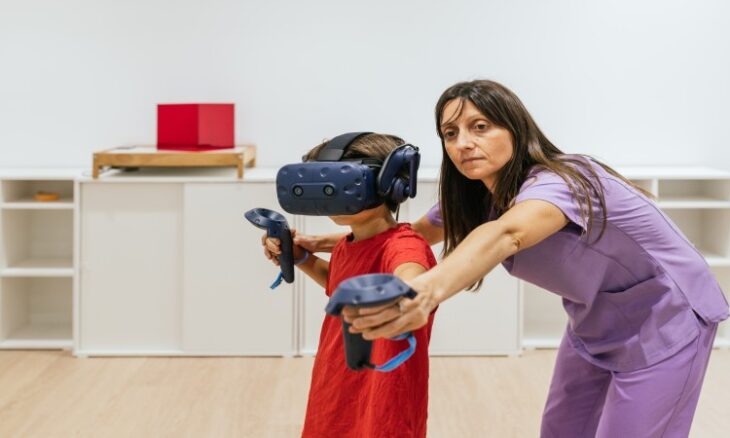Virtual Reality Headsets Aid Young Patients in Galway
The Paediatric Unit at University Hospital Galway has recently incorporated Smileyscope, an innovative virtual reality headset designed for children. This advancement reflects a growing focus on empathy, innovation, and excellence within paediatric healthcare.
For many young patients, hospital visits can provoke anxiety, fear, and distress. Smileyscope offers immersive experiences that guide children through calm and interactive visual journeys aligned with medical procedures. The headset has been particularly effective in addressing common challenges, including needle phobia, injection-related anxiety, distraction during blood draws and cannulations, as well as relaxation during imaging procedures or preparation for surgery.
By reducing pain perception and fear, Smileyscope contributes to smoother medical interventions, fewer delays, and greater efficiency for healthcare staff. The technology also decreases the time and resources typically required to settle distressed children, allowing medical teams to focus more on delivering care.
The introduction of Smileyscope at the hospital was made possible through the support of the Galway Sick Kids Foundation, which funded four headsets for the unit. Staff members have reported that the device has transformed the way children experience hospital procedures, especially those with additional needs. For these patients, Smileyscope provides both comfort and distraction, turning otherwise stressful moments into calm and even enjoyable experiences.
Among the most popular visual journeys available is an underwater adventure. This programme synchronises with injection moments, showing waves washing over the targeted area and fish nibbling playfully at the child’s arm. Such imaginative sequences shift a child’s focus from fear to fun, creating a more positive experience while medical staff carry out necessary procedures.
Feedback from patients has been strikingly positive. Children who have used the headset described the device as lightweight, comfortable, and entertaining, with vibrant visuals that created a sense of being inside a video game. Many reported that the distraction helped them relax and eased their fear of needles, ultimately making the process of giving blood or undergoing injections far less intimidating.
Parents have also responded with enthusiasm, noting how the headsets transformed typically stressful appointments. Observers highlighted instances where anxious children, who had previously struggled with blood draws, appeared far more relaxed while using the VR technology. Parents expressed relief and gratitude, acknowledging the profound difference in their children’s confidence and comfort levels when undergoing medical procedures.
The Galway Sick Kids Foundation has emphasised that its mission is to support initiatives which directly improve the experiences of young patients and their families. According to the organisation, Smileyscope achieves this by converting daunting medical moments into calmer, more manageable encounters. The foundation has expressed optimism about the long-term benefits this technology will deliver, particularly in reducing the emotional toll of hospital visits on children.
The deployment of Smileyscope at University Hospital Galway illustrates a wider trend in healthcare towards integrating technology to enhance patient well-being. By bridging the gap between clinical necessity and patient comfort, such innovations not only benefit children but also improve the overall efficiency of hospital operations. In Galway, the use of virtual reality has already begun reshaping paediatric care, offering both immediate relief for young patients and a glimpse into the future of healthcare support.










